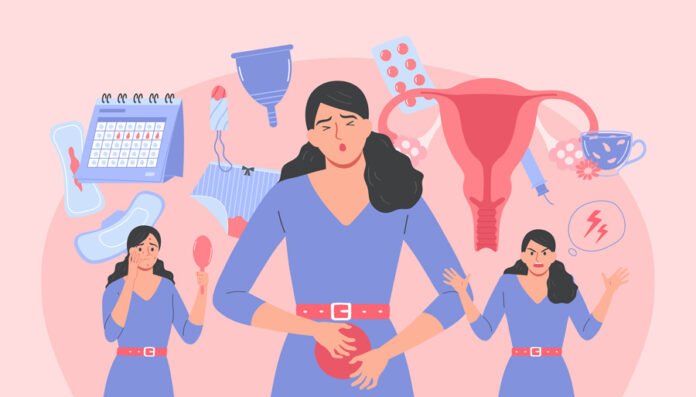Maintaining reproductive health is a vital aspect of overall well-being for women. Gynecology, the medical practice dealing with the health of the female reproductive system, plays a crucial role in this. Regular visits to a gynecologist are essential, not only for diagnosing and treating specific conditions but also for preventive care. Understanding when to see a gynecologist can significantly impact a woman’s health, helping to prevent issues before they become serious. In this guide, we will explore the key reasons to consult a gynecologist and emphasize the importance of professional care.
The Importance of Regular Gynecological Check-ups
Regular gynecological check-ups are essential for women of all ages. These visits allow for early detection of potential health issues, ensuring timely treatment and reducing the risk of complications. Gynecologists are trained to manage a wide range of conditions related to the reproductive system, including menstrual irregularities, hormonal imbalances, infections, and reproductive planning.
For young women, the first gynecological visit should ideally take place between the ages of 13 and 15. This initial visit is usually more about establishing a relationship with the doctor and discussing reproductive health, rather than conducting a physical exam. As women age, annual check-ups become more critical, especially as they approach their reproductive years.
When to See a Gynecologist: Key Reasons
1. Menstrual Irregularities
One of the most common reasons women visit a gynecologist is for menstrual irregularities. These can include heavy bleeding, missed periods, or painful cramps. While some irregularities may be normal, especially during puberty or perimenopause, persistent issues could indicate underlying health conditions such as polycystic ovary syndrome (PCOS) or fibroids.
If you experience any significant changes in your menstrual cycle, it’s essential to consult a gynecologist. Early diagnosis and treatment can help manage symptoms and prevent complications in the future.
2. Pelvic Pain
Pelvic pain is another critical reason to see a gynecologist. This pain can be related to various conditions, including endometriosis, ovarian cysts, or pelvic inflammatory disease (PID). Chronic pelvic pain should not be ignored, as it can significantly impact your quality of life and may indicate a more severe issue.
A thorough evaluation by a gynecologist can help determine the cause of the pain and provide appropriate treatment options. In some cases, this may involve medication, physical therapy, or surgery.
3. Reproductive Planning and Pregnancy
Whether you are planning to conceive or need advice on contraception, a gynecologist is your go-to healthcare provider. Gynecologists can offer guidance on family planning, including fertility assessments and the best contraceptive methods for your lifestyle and health needs.
For those who may struggle with fertility, consulting the best IVF hospital in Patiala can provide advanced reproductive technologies and support. IVF (In Vitro Fertilization) is a common treatment for infertility, offering hope to many couples trying to conceive.
During pregnancy, regular visits to a gynecologist are crucial for monitoring both the mother’s and the baby’s health. Prenatal care helps identify any potential complications early on, ensuring a healthy pregnancy and delivery.
4. Preventive Screenings
Preventive screenings are a cornerstone of gynecological care. Pap smears, for example, are essential for detecting cervical cancer at an early stage. Regular mammograms, starting at age 40 (or earlier, depending on risk factors), are vital for breast cancer detection.
Your gynecologist will also perform pelvic exams to check for abnormalities in the uterus, ovaries, and other reproductive organs. These screenings are vital in catching potential issues before they become severe, offering better treatment outcomes.
5. Menopause and Hormonal Changes
As women age, hormonal changes can lead to various symptoms, including hot flashes, mood swings, and vaginal dryness. Menopause, the cessation of menstruation, typically occurs between the ages of 45 and 55, marking the end of a woman’s reproductive years.
A gynecologist can provide valuable support during this transition, offering treatments to manage symptoms and prevent complications such as osteoporosis. Hormone replacement therapy (HRT) is one option that can help alleviate menopausal symptoms, but it should be discussed thoroughly with your doctor to weigh the benefits and risks.
6. Gynecological Conditions
Gynecologists are experts in diagnosing and treating various gynecological conditions, including infections, sexually transmitted diseases (STDs), and cancers of the reproductive system. Regular check-ups and early intervention are crucial in managing these conditions effectively.
If you’re experiencing symptoms such as abnormal discharge, itching, or pain during intercourse, it’s essential to see a gynecologist promptly. These could be signs of an infection or other underlying conditions that require medical attention.
For personalized care, consider consulting the best gynecologist in Patiala, who can provide expert advice and treatment tailored to your specific needs.
The Role of Expertise in Gynecological Care
When it comes to reproductive health, expertise matters. Gynecologists undergo extensive training to specialize in the female reproductive system, ensuring they are equipped to handle a wide range of conditions. Their experience allows them to offer evidence-based care, whether you’re dealing with routine check-ups or more complex health issues.
Moreover, choosing a reputable healthcare provider is essential for maintaining trust and confidence in your care. The best gynecologists prioritize patient education, helping you understand your health and empowering you to make informed decisions about your care.
Conclusion
Reproductive health is a vital aspect of a woman’s overall well-being, and regular visits to a gynecologist are crucial in maintaining it. Whether you’re dealing with menstrual irregularities, planning for pregnancy, or navigating menopause, a gynecologist can provide the support and care you need. Preventive screenings and early intervention can make all the difference in managing health issues and ensuring a healthy life.
For those seeking specialized care, consider visiting the best IVF hospital in Patiala or consulting the best gynecologist in Patiala for expert advice and treatment. Prioritizing your reproductive health today can lead to a healthier and happier future.



